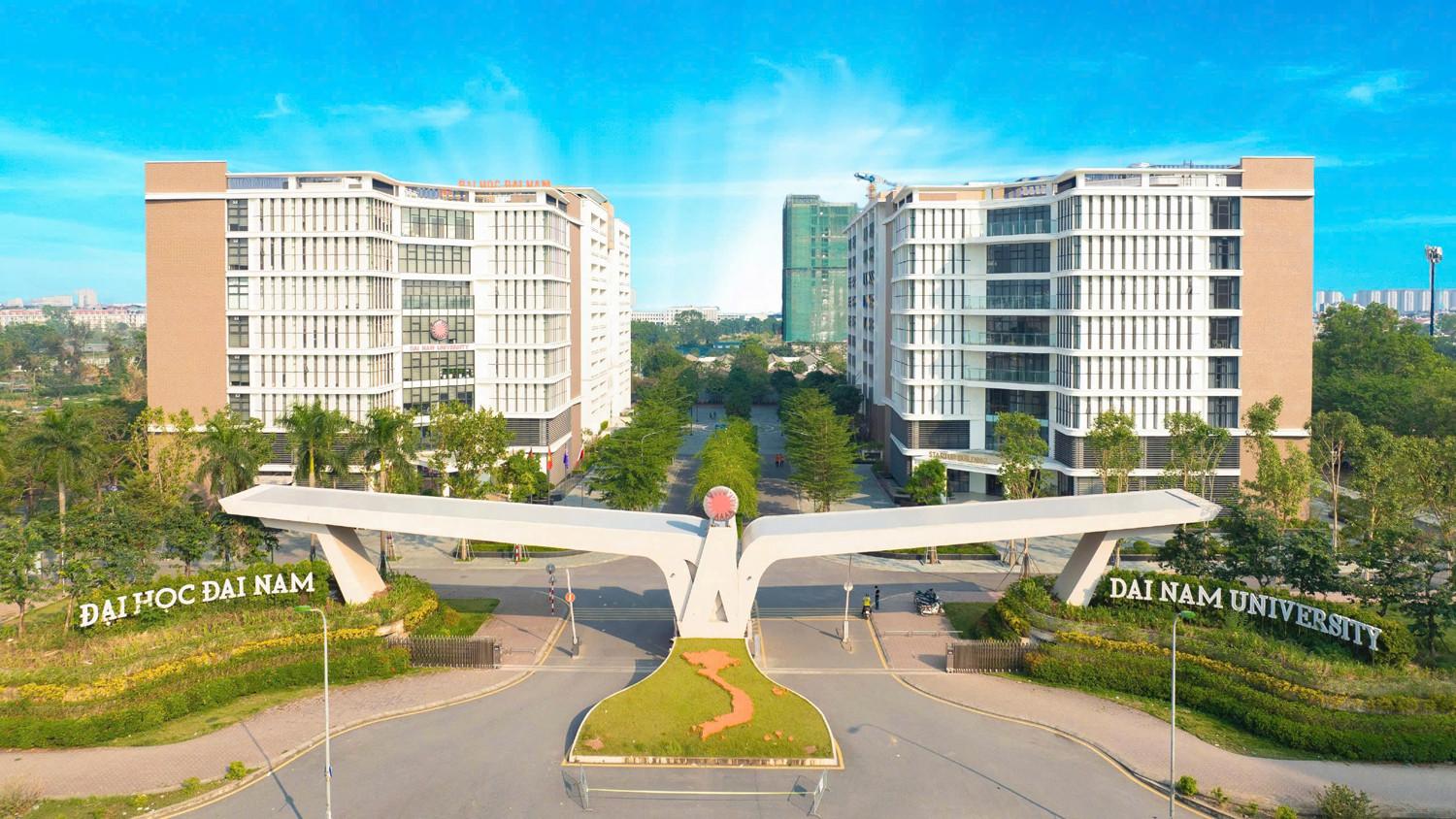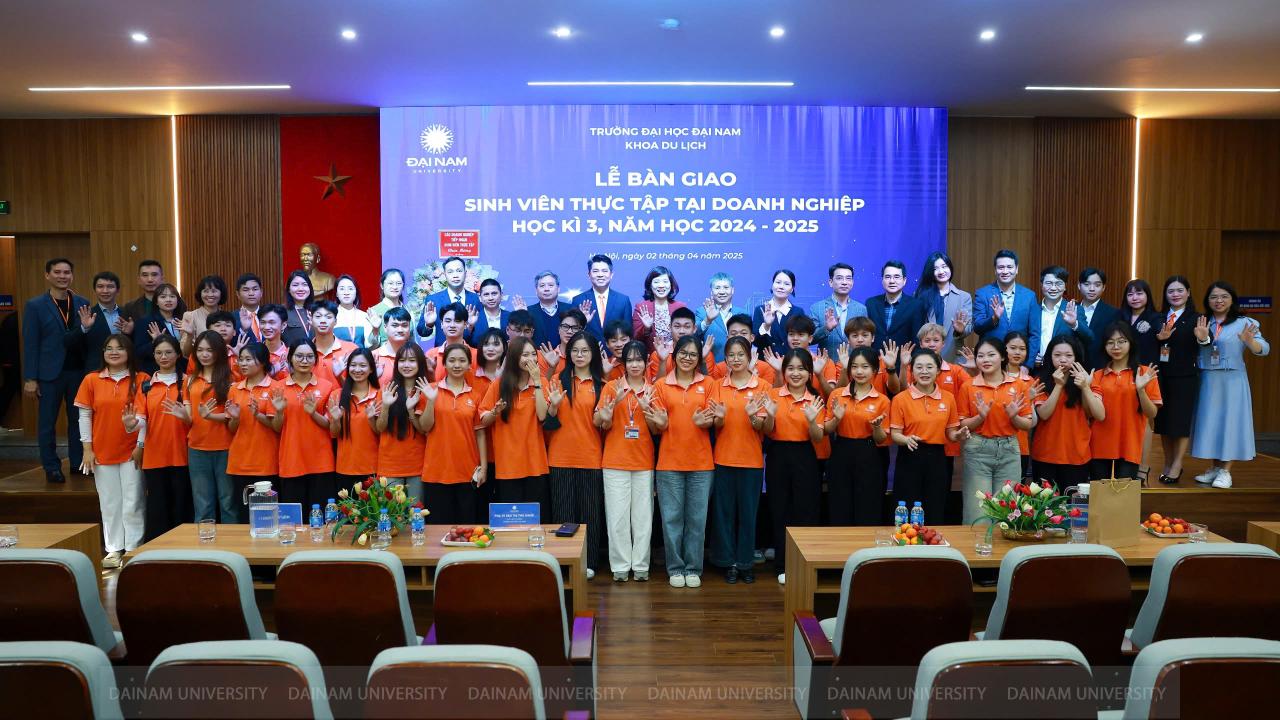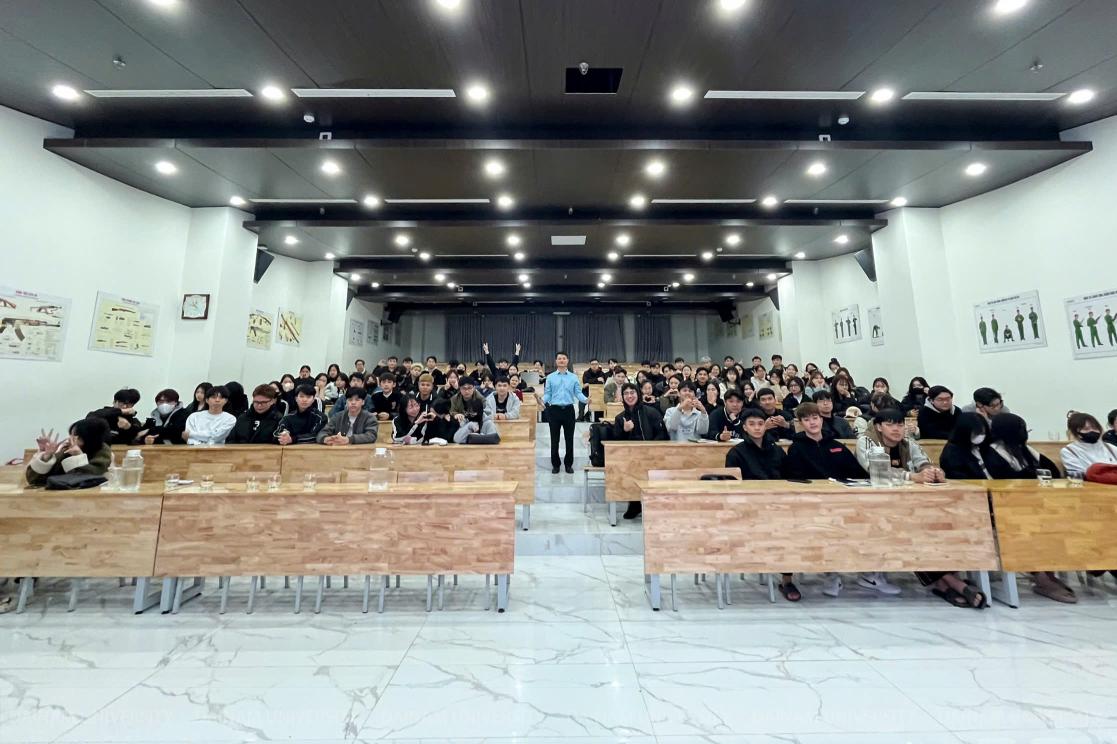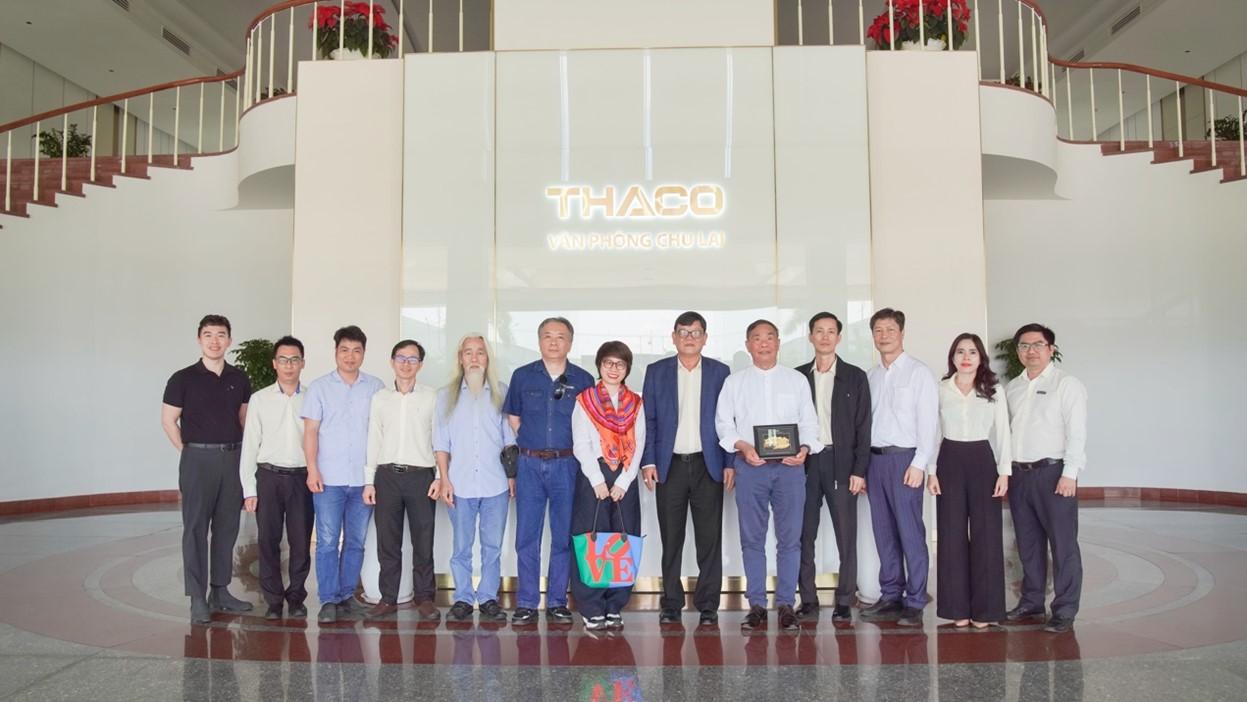Things to know about the Faculty of Law, Dai Nam University

- GENERAL INTRODUCTION
The Faculty of Law – Dai Nam University was established under Decision No. 452/QD-BGDDT dated February 10, 2015 of the Minister of Education and Training. After 6 years of construction and development, the Faculty of Law has gradually affirmed its position, role and mission.
The faculty of Law is composed of Associate Professors, Doctors and Masters with good professional qualifications and good teaching skills. Modern teaching and learning methods help students consolidate and synthesize the knowledge they have learned in class and develop their own thinking and creative research abilities.

The Faculty of Law - majoring in Economic Law of Dai Nam University is one of the strong faculties, attracting the attention and study of many young people.
Modern and professional learning conditions, students can register to participate in debate programs, scientific research, internships at organizations, businesses, and law offices from the second year. Students are not only trained in knowledge but also in soft skills and positive attitudes through useful extracurricular activities.
- Every year, many students receive scholarships. The rate of students receiving scholarships is always among the top of the school.
- The Faculty of Law has many scientific research works of lecturers and students that are highly appreciated by the School and have good practical application.
- Besides studying and scientific research activities, students of the Faculty also actively participate in movements and extracurricular activities and win many high awards.
Vietnam's economy is increasingly prosperous with the continuous development of domestic companies, enterprises and foreign-invested corporations. More than ever, the legal corridor and issues related to economic policies need to be ensured. Any enterprise or organization needs to understand the law to conduct business activities in accordance with the law.
It can be said that the field of Economic Law has become an indispensable profession in modern society, providing students with in-depth knowledge and skills in law, legal practices in business; the ability to research and handle legal issues arising in the practice of business activities of enterprises and state management of enterprises. Therefore, the employment rate of graduates is 100%.
- TRAINING PROGRAM
- Industry code: 7380107
- Training period: 4 years
- Degree: Bachelor of Economic Law
- Admission block:
- C00: Literature, History, Geography
- A08: Math, History, Civics
- A09: Math, Geography, Civic Education
- C19: Literature, History, Civic Education
ECONOMIC LAW TRAINING PROGRAM:
- Basic knowledge of the field: Economics, Monetary and financial theory, Marketing, Business administration, Logic...
- Basic knowledge of the industry: Theory of State and Law, Constitutional Law, Administrative Law, Civil Law 1, Civil Law 2, Comparative Law.
- Industry knowledge: Commercial Law 1, Commercial Law 2, Labor Law, Financial Law, Banking Law, Land Law, Environmental Law, Competition Law, Intellectual Property Law, Civil Procedure Law.
- Specialized knowledge: International Law, Criminal Law, Criminal Procedure Law, Marriage and Family Law, ASEAN Community Law, Legal Document Drafting Techniques, Investment Law, International Commercial Law, Securities Law, Judicial Psychology, Specialized English.
- Skills subjects: Contract law in business, Law on consumer protection, Legal practice, Skills to resolve labor disputes...
- HIGHLIGHTS OF THE ECONOMIC LAW FACULTY AT DAI NAM UNIVERSITY
The Economic Law major has been trained by Dai Nam University since 2015, attracting many students to study right from the first years. The difference in training here is applied and practical training. Combining theory with simulation activities, practice, career orientation for students through mock trials, law fairs, participating in real trials through monthly activities of the Law Faculty Student Club.

Discussion session on "Innovations in the 2013 Constitution" at Dai Nam University library.
- The Faculty of Law's leadership team has over 30 years of experience in Law training. Currently, Economic Law is identified as an important training field of the School, with wide-open job opportunities for students.
- In addition to specialized content and skills, the training program focuses on teaching basic and specialized English, soft skills training, and information technology, helping law students to use English and apply information technology firmly in their professional activities upon graduation.
- Organize career orientation seminars right from the first days of the school year, so that new students can orient their careers, partly helping students set their own study plans as well as equip themselves with knowledge during the learning process to serve their future work.
- The training program focuses on practical application to help students comprehensively develop professional skills through "simulation" activities, attending actual court sessions at courts (Supreme Court, Provincial, City, District People's Courts, etc.), visiting the National Assembly Office, doing internships at law offices, notary offices, law firms, state-owned and private enterprises, People's Committees at all levels, career guidance centers nationwide, etc. so that students can visualize their future working style.
Organize career orientation seminars and talks right from the beginning of the school year.

The Faculty of Law always focuses on student academic and scientific research programs to help students enjoy learning, research, and apply knowledge to practice.

Students attend Soft Skills camp.
ACTIVITIES OF STUDENTS OF ECONOMIC LAW
In addition to knowledge and skills in practicing Law, the Faculty and the school have focused on training the ethics and attitudes of future Law graduates towards society, organizing social work activities such as "Warm Winter", "Bread of Love", "Say No to Plastic Bags", "Blood of Love" for students to participate in...

Law students join the program "My sister takes the exam"

Law students volunteer in Ha Giang.

Team building.

Students participate in the Christmas Festival organized by the faculty.
OUTPUT STANDARDS OF BACHELOR OF ECONOMIC LAW
- Knowledge requirements:
Graduates of the Economic Law major meet the following knowledge standards:
Standards of general education knowledge according to regulations of the Ministry of Education and Training for the field of Economic Law, mastering principles and laws of nature and society; having knowledge of political theory, natural sciences, social sciences and humanities at university level.
Have basic knowledge of economic management and business administration including: Knowledge of sociology, basic principles in business and enterprise management, commercial statistics, financial and monetary management, economics and commercial business;
Ensure basic, updated and developed knowledge of economic law, including knowledge of theory and history of State and Law, Constitution, civil law, administrative law, and international public law and international justice;
Master in-depth knowledge and legal practices in commerce, finance, banking, insurance, securities, investment, labor and social security, intellectual property, etc.
Have complementary knowledge and develop into other training majors of the University of Commerce and schools in the fields of Law and Economics, Business Administration, including basic knowledge of law, accounting - auditing, finance - banking, economics and business administration.

- Skill requirements
Graduates meet the basic general skills of the Economic Law major and specialized skills of the Commercial Law major. Specifically:
2.1 Hard skills
- Skills to analyze, detect, resolve and advise on economic and commercial legal issues arising in the business activities of the enterprise;
- Skills in planning and ensuring legal content in strategic management, policies, and business plans of enterprises and other economic organizations;
- Skills in establishing, controlling the legal form and content and concluding contracts in the business and commercial fields of enterprises and other economic organizations;
- Skills to participate in planning, implementing, monitoring and evaluating commercial legal regulations in state management at all levels of economics and trade;
- Ability to perceive and apply basic contents of international law and good foreign practices to solve practical problems in Vietnam.
2.2. Soft skills
- Foreign language skills: After graduation, students must meet the English output standards equivalent to Level 3 according to Circular 01/2014/TT-BGD&DT regulating the 6-level foreign language competency framework for Vietnam (equivalent to some other foreign language certificates according to Circular 05/2012/TT-BGDDT dated February 15, 2012 of the Minister of Education and Training);
- Computer skills: Proficient in office software, and can use specialized software for the industry/specialization of training;
- Effective teamwork skills in researching and solving economic and commercial legal problems;
- Communication and media skills on economic and commercial legal issues;
- Skills to express economic and commercial legal issues in writing and presentation
3. Attitude requirements
After graduation, students must achieve the following standards of attitude and behavior:
- Have good moral qualities, understanding, live and work according to the law, have civic responsibility, have strong political will. Always uphold professional awareness;
- Have a sense of concern for the community. Actively discover and participate in solving legal issues that are posed by business practices and economic management of enterprises as well as the Vietnamese economy;
- Ability to be independent and proactive in learning and research. Ability to update knowledge, be creative in work, have the courage and spirit to learn and strive to assert one's own abilities;
- Scientific and professional working style, dynamic thinking, valuing work efficiency. Ability to work in an environment with many pressures of competition, integration and development.

JOB OPPORTUNITIES FOR STUDENTS STUDYING ECONOMIC LAW
Job opportunities in the field of Economic Law are very diverse and quite attractive, not only limited to jobs in state agencies but also working in companies, legal services...
It can be seen that in the trend of international economic integration, especially when Vietnam becomes a member of the World Trade Organization WTO, understanding domestic and foreign laws is of great significance to the development of any enterprise, agency or organization. Therefore, the demand for high-quality labor in the Law industry in general and Economic Law in particular is very large. Therefore, with the above information, the question of whether studying law is easy to find a job for many students has been resolved.
Job opportunities in the field of Economic Law are very diverse and quite attractive, not only limited to jobs related to the legal profession in state agencies, courts, justice departments, prosecutor's offices, etc., but also working in enterprises, production and business units, joint ventures, investments or in legal service organizations.

Specifically, students can work in a number of occupations and fields as follows:
- Working in businesses: Graduates of Economic Law will be suitable for working in businesses as legal specialists in charge of tasks related to negotiation, drafting, and signing contracts; proposing solutions to handle legal situations in business.
- Working in state agencies: Graduates of Economic Law, with basic knowledge of economics, can work in courts at all levels, agencies of the National Assembly, the Procuracy, the police, government ministries, People's Committees, local departments, offices, etc.
- Working at research and legal consulting organizations: Graduates of Economic Law can work at research institutes and centers providing legal consulting services such as law offices and law firms.
In addition, Bachelor of Economic Law can participate in commercial arbitration centers as arbitrators to resolve commercial disputes; teach at universities and colleges that provide training in economic law, economic management and business administration.










